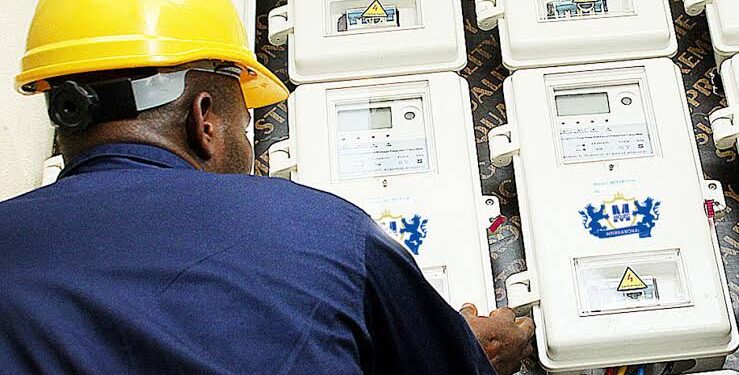Working remotely in Nigeria, the continent’s fourth-largest economy, is becoming an increasingly difficult endeavor for many workers. This is primarily due to the rising cost of living, characterized by unstable electricity supplies and soaring petrol prices. For professionals dependent on electricity and fuel to power their homes and devices, the situation has grown untenable, forcing them to explore alternative energy sources to maintain productivity.
The high cost of fuel, particularly following the removal of the government fuel subsidy, has severely impacted Nigerians. In July 2023, the subsidy removal led to a drastic spike in petrol prices, a burden felt heavily by remote workers who rely on generators to power their homes. The price of petrol surged from N165 per litre to well over N998 in Lagos and N1,030 in Abuja. This steep rise in fuel costs, coupled with increased electricity tariffs, has pushed many to the edge.
Electricity costs, too, have escalated sharply. According to the Nigerian Electricity Regulatory Commission (NERC), tariffs rose by more than 40 percent in 2023, climbing from an average of N30.23 per kilowatt-hour (kWh) in 2022 to over N45.93 per kWh. As of 2024, some Nigerians are paying over N200 per kWh. Despite these rising costs, the country continues to be plagued by frequent power outages, further exacerbating the challenges for remote workers.

A larger portion of the Nigerian workforce either works entirely remotely or follows a hybrid model, alternating between office days and working from home. Remote work depends heavily on a reliable supply of electricity and stable internet access, making the current power situation even more troubling. In 2022, global statistics indicated that around 18 percent of people worked remotely full-time, underscoring the importance of stable energy sources.
For workers like Tola Bamidele, a freelance graphic designer in Lagos, the rising cost of fuel has drastically impacted his budget. “I used to spend about N20,000 monthly on fuel for my generator, but since the subsidy removal, my costs have more than doubled to N50,000. So, I had to buy solar,” he explained. Tola’s story reflects the broader struggle faced by remote workers across the country.
Taiwo Aina, a software developer, echoes these sentiments, expressing frustration over his skyrocketing fuel expenses. “Fuel has been my biggest spend this year. It almost feels like I spend all the money I make on fuel, and it is not even ending soon. Despite having my money, I would still spend long hours of productive time in queues. As a result, I had to explore solar,” he shared.
The struggle isn’t limited to fuel prices alone. Remote workers like Deranti Adeolu are equally frustrated by the incessant power cuts. She often finds herself searching for locations where she can charge her devices to continue working. “Many times, I have had to leave the house to find where to power my gadgets for work,” she noted. Like Taiwo, she is also considering a switch to solar energy.
However, the switch to solar is not without its own set of challenges. While solar energy provides a more stable and long-term solution, the upfront investment required for installation is significant. Many Nigerians are finding it difficult to afford the initial costs, especially with double-digit inflation eroding their purchasing power. Despite the financial strain, the long-term savings and reliability that solar offers are increasingly appealing to Nigeria’s growing remote workforce.

The shift toward solar has gained momentum in recent months. Following the removal of the fuel subsidy, companies like SunFi, a solar financing platform, have been advocating for the adoption of solar energy. In 2023, SunFi tweeted: “The future of work is evolving as the fuel subsidy is removed. Employers are embracing remote/hybrid work setups, but remote workers are also facing challenges in fueling their generators. We know solar can be expensive, but it can make a difference.”
While the benefits of solar energy are clear, the cost remains a major hurdle for many. Victor, a software engineer, has been saving up for a solar panel but has encountered setbacks along the way. “I have been trying to save for a solar panel. Sometimes, it is not even encouraging because a friend gathered money to afford a solar panel, and his batteries were stolen before daybreak,” he shared.
Despite these challenges, some remote workers have already made the switch to solar. Ekene Uche, a Lagos-based graphic designer, initially used solar energy to supplement his power needs. However, his 3-kW solar system now powers his home office and basic appliances, allowing him to stay connected during frequent power outages. “I haven’t bought petrol in months, and my power bill is significantly lower,” he proudly stated.
Gabriel Adeleke, a data entry specialist, also turned to solar energy and explained the costs involved in making the switch. “Solar panels range from N50,000 to N150,000, while solar inverters are between N300,000 and N1,500,000. The installation cost of a solar power system in Nigeria varies based on the system’s size. A 1 kW system may cost roughly N500,000, while a 5 kW system can amount to around N2,500,000,” he elaborated.
In addition to solar, many workers are investing in backup battery systems, typically lithium-ion, to store excess electricity and provide power during outages. Stella Adeola, a freelance writer in Ogun State, emphasized the importance of backup power. “With the frequent blackouts, I needed something reliable,” she said. “I couldn’t risk missing deadlines because my generator failed or I ran out of fuel.”
The rising demand for solar energy has led to the introduction of financing plans aimed at helping workers make the transition. Rotimi Thomas, chief executive officer of SunFi, noted that many customers have been asking about installment plans for solar systems. “Customers would always ask us if there was a way for them to pay for the solar systems in installments. The challenge customers face with solar providers is that they want solutions they can pay for in small amounts,” he said.
As more Nigerians explore solar energy to address the challenges of working remotely, it’s clear that this shift, though expensive, could provide the stability needed to maintain productivity in an economy facing energy crises. The growing adoption of alternative energy sources highlights the resilience of Nigeria’s remote workforce, even as they contend with an increasingly unstable and costly power grid.































